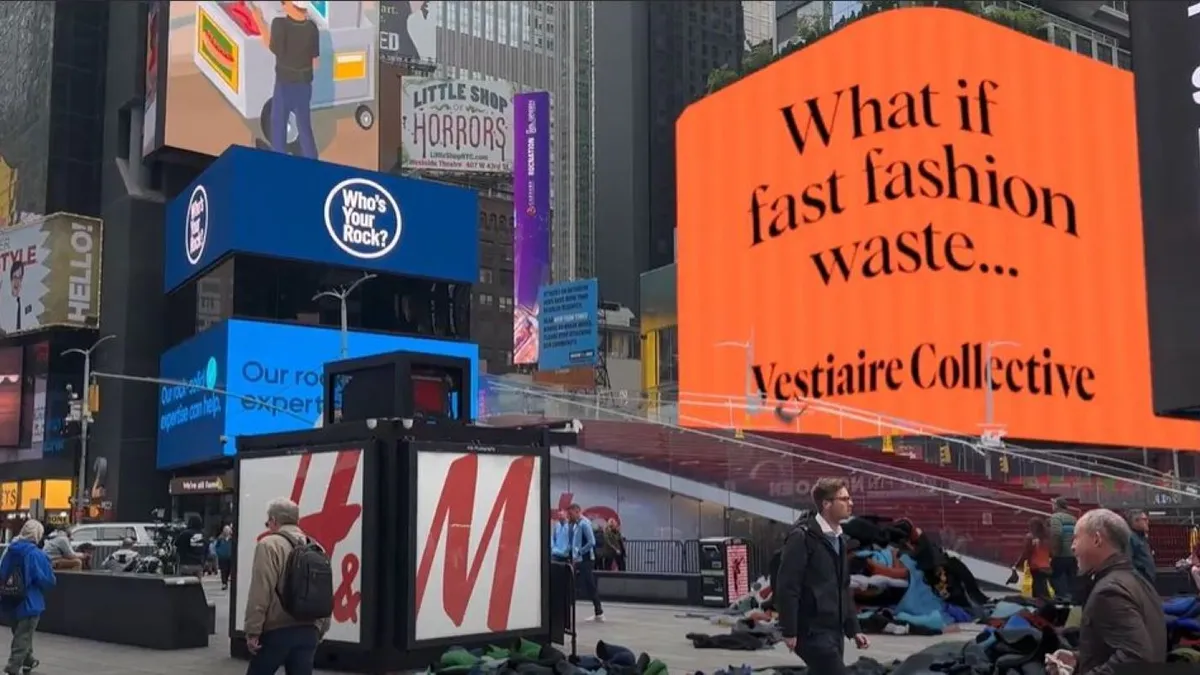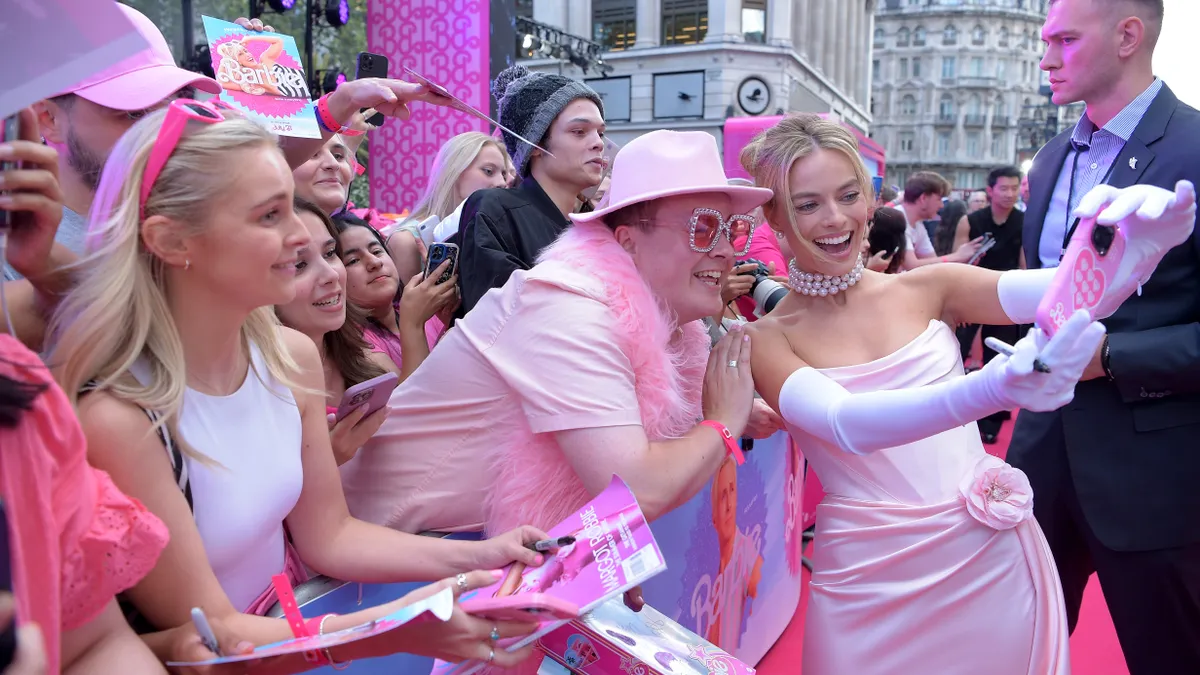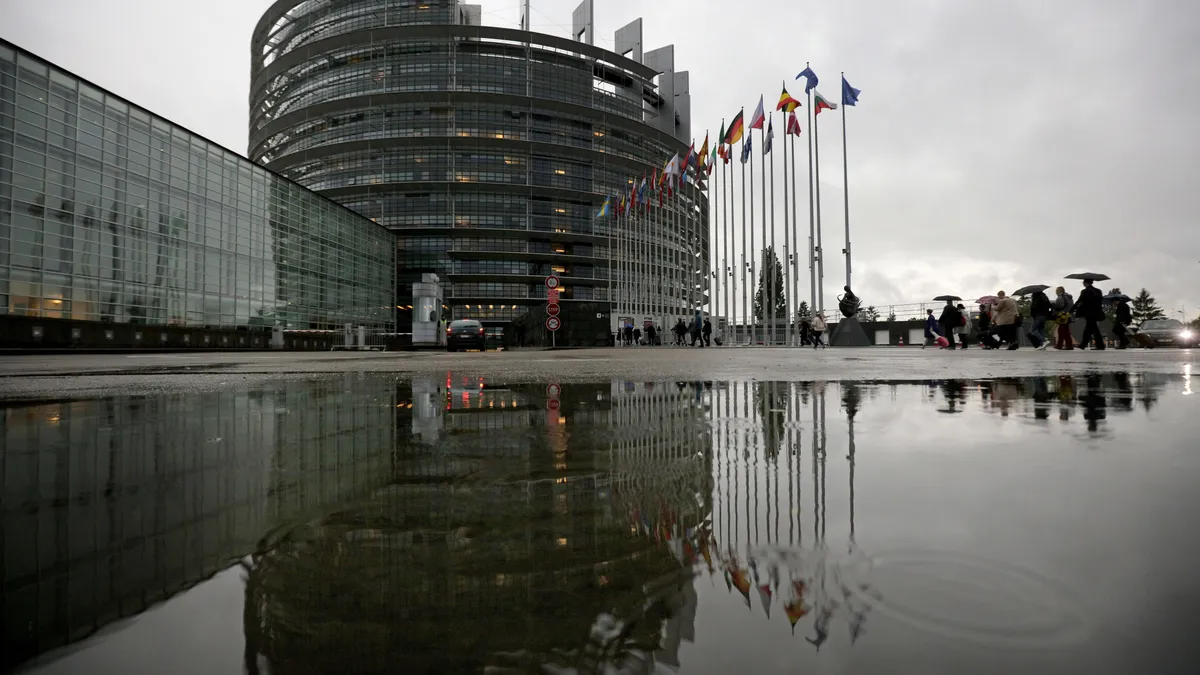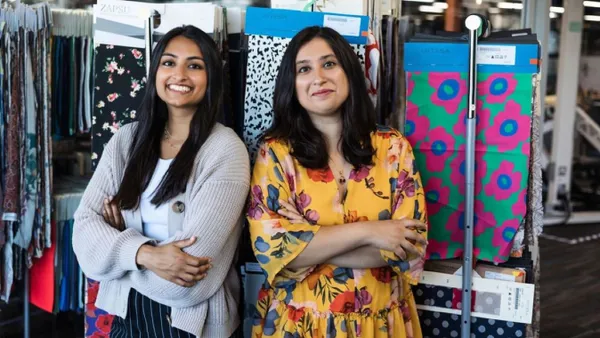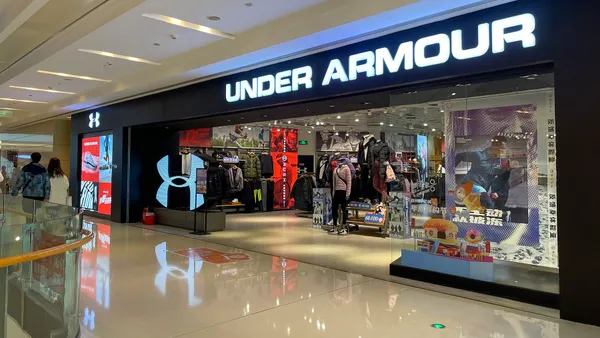Dive Brief:
- Luxury fashion reseller Vestiaire Collective announced a ban on Thursday that removes brands it considers to be fast fashion and harmful to the environment, per a release sent to Fashion Dive.
- In total, the site banned 30 brands this year, including Abercrombie & Fitch, Gap, Old Navy, H&M, Mango, Uniqlo, Urban Outfitters and Zara. Labels were chosen by a committee of nine industry and sustainability experts, and selected based on their “negative environmental and social impact,” per the release.
- Vestiaire previously banned 33 fast fashion labels in 2022, including Topshop, Shein, Forever 21, Asos and Boohoo.
Dive Insight:
The total number of fast fashion brands banned over the past two years represents only 5% of Vestiaire’s catalog, and a spokesperson for the company told Fashion Dive in an email that the ban “will not impact our sales that much but this has never been taken into consideration while we were making this decision, and we would have done it even if it did represent a higher percentage.”
The idea behind the decision was to think about the long term, and to “bring awareness to the environmental and social consequences of Fast Fashion in our society and try to change consumer shopping behavior by educating them,” the spokesperson said.
Additional banned brands this year include OVS, Disney, Hollister, Bennetton, American Apparel and Mango.
“When we took the decision to ban fast fashion from our platform last year we then realized that a fast fashion brand was difficult to determine,” Vestiaire’s spokesperson said. “We therefore decided to ban the ultra fast fashion brands in the first wave (i.e. Shein, Boohoo) and used the past year to work with a committee of 9 fashion sustainable experts to come up with a clear definition of fast fashion allowing us to ban, with confidence, some industry giants.”
Vestiaire’s team of experts for this initiative include Orsola de Castro, co-founder of not-for-profit accountability organization Fashion Revolution and Liz Ricketts, co-founder and director of The Or Foundation, a nonprofit environmental education and fashion development organization, per the release.
The spokesperson said Vestiaire wants to mobilize the fashion industry — including influencers, consumers, NGOs, brands, investors, and policy makers — to work towards ridding the world of fast fashion that is bought, consumed and then disposed of.
“This is as much a business decision as a policy decision,” said Brian Ehrig, partner in the consumer practice of Kearney and co-author of the firm’s 2023 Circular Fashion Index (CFX), in an email to Fashion Dive. “Consumers associate fast fashion with low quality. These products were never designed for durability, they weren’t envisioned to have more than one owner, and it’s not good business to offer flimsy products for sale, particularly on a luxury site.”
While approximately 92 million tons of textile waste are thrown away every year, according to a 2020 paper in the scientific journal Nature Reviews Earth and Environment, there’s still a large market for fast fashion, especially among younger consumers.
“I’d be interested to know what criteria Vestiaire Collective used to make its decisions beyond circularity,” said Ehrig. “To take one company, OVS has a very strong circularity value proposition. We’d ranked them 4th overall in our recently released Circular Fashion Index (CFX). So it would seem some of the choices on this list are somewhat arbitrary.”
Yet the spirit of this initiative makes sense, said Ehrig.
“It shouldn’t fall on a company like Vestiaire Collective to get involved in solving fast fashion’s end of life problems,” he said. “Those companies should be the ones figuring it out, and we are already seeing legislation pending such as the Extended Producer Responsibility (EPR) act in California making it clear who needs to solve this problem.”
Correction: This brief has been updated to reflect the correct number of brands Vestiaire banned in 2022.


